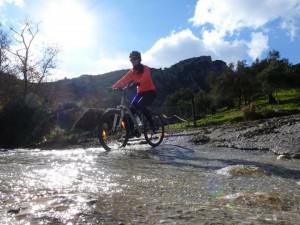As a conscientious student who always does some research before doing her homework (whose benefits one need to be reminded of from time to time so as for motivation to be sustained!), I browsed the Net for information about how health can affect a teacher’s work before beginning this piece. Surprisingly enough, this is what I immediately stumbled on:
40% of teachers reported having visited their doctor with a stress-related problem in the previous year.
20% of teachers considered they drank too much
15% believed they were alcoholics.
25% suffered from serious stress related health problems including hypertension, insomnia, depression and gastrointestinal disorders.
(Taken from: http://www.school-teacher-student-motivation-resources-courses.com/howdoesstressaffecthealth.html )
Upon reading this, it hit me: teachers need to consciously do everything in their power so as not to find themselves in a similar plight. How is effective teaching possible in the context of all the aforementioned problems — especially when sobriety is lacking! This funny thought led me to the following realization: When embarking on a teaching profession, one must be prepared to face all difficulties and demands by discovering ways to renew their energy reserves. This is what I strive to do at the beginning or end of each tiring weekday.
First of all, enriching my educational knowledge by reading various teachers’ blogs and subsequently updating my blog always makes me feel eager to go into class and put these ideas into practice. Seminars, conferences and webinars constitute another great source of inspiration for all educators. A case in point is the iTDi webinar which was held on April 28th.
Also, pursuing an interest plays a crucial role in personal development. For example, whenever I read a good book of Greek or English literature, I invariably end up having more ideas about what material to employ in my next lessons. One of the English books I have recently read is Irvin Yalom’s “When Nietzsche Wept”, which subsequently led me to reflect on personal happiness and urge my adult learners to do the same in a related blog post I prepared for them. The more I read and learn, the more I yearn to share this knowledge with others.
One final activity that relaxes and totally invigorates me is cycling. The feel of the gentle touch of air on my face while cycling in the countryside gives me a unique sense of freedom, motivating me to work equally hard the following day. This sport has, quite unexpectedly, provided me with loads of classroom material, since I used photos of mountainous scenery and cycling equipment as prompts in speaking lessons. To me, every little thing in life, no matter how insignificant it may seem, can constitute EFL material with the proper manipulation.
Above you can admire the view I got to see (Heraklion can be distinguished in the distance) after cycling up a steep hill, sometimes through muddy, craggy paths and small streams, like in the photo below.
In the final analysis, this is what teaching is to me: physically and mentally exhausting and demanding at times, but totally rewarding in the end. Let us all do whatever we can to keep ourselves healthy and motivated so as to enjoy the breathtaking view at the end of the route, side by side with our students.
To round off, I’d like to leave you with these questions:
How often do you spend time expanding your teaching knowledge?
What interest of yours rejuvenates you the most?
Have you ever integrated any material derived from your hobbies into your teaching?




Frightening statistics – your post is certainly a MUST read! If we don’t look after ourselves, who will?
Naomi
I’m with Naomi about the statistics, Cristina – frightening! Never thought about a teacher’s work being so unhealthy. Actually, teaching is what motivates me for life! But, at the same time, and answering one of your questions, I do integrate the strategies of running (one of my favorite hobbies) into my teaching. I’ve been doing that for such a long time with good results – so good that my students always ask me: does teaching motivates you to run or running motivates you to teach? 🙂
I guess each one of us should find what motivates us most and I do agree with you, as teaching being “physically and mentally exhausting and demanding at times, but totally rewarding in the end.” So rewarding that it keeps me motivated over and over again!
Thanks for your post! It turned my motivation on a little bit more!
Hello Naomi and Malu and thank you for your wonderful comments!
It is an honor you both agree with me! Yes, Malu, sometimes running, cycling or whatever that sport may be make you want to teach, which is the true magic in them- right?
Keep inspiring your students to do even better- I am sure you both do!
Christina 🙂
Well, it is all a matter of good emotional state and constant variation of pace of daily life activities we do to empower our teaching ability in the EFL classroom and to boost their intrinsic motivation; in this way, I feel learning is maximised.We ‘ll have to recall our students’ extrinsic /intrinsic motivation to “avoid teacher burnout” in a way, I guess!
Good post, Chrisitna! (I go swimming to energise myself!)
I find myself wondering about the hidden schools here in Greece during the Ottoman occupation, and wondering whether 15% of the teachers in those schools had a serious drink problem, bearing in mind all the risks of incurring the wrath of the Turk. I imagine not (although I may be wrong), and I imagine that the crucial factors included their sense of vocation and their acute sense of a hostile context in which education is vital for the preservation of our culture. The problem, I think, for some of us who have a drink problem is that we look around and don’t see a widely shared belief in a vocation and a purpose, and as we drink we stare into the bottom of the glass and occasionally become nostalgic for those dangerous days amongst the Ottomans.
Hi Paraskevi and Torn! Heartfelt thanks for your comments!
Yes, Paraskevi; running is equally effective! As long as you let off steam, you can come back to the classroom more creative than before!
I am glad, Torn, that you raised this issue. A teacher doesn’t have to drink when he sees a point in what he is doing. However, no-one can deny that a drink every now and then can be relaxing, especially after a hectic day at work. Right? 🙂
Getting serious again, we don’t have to set the clock back to the Ottoman empire to prove that there ARE teachers who enjoy what they do and are good at it, without resorting to harmful substances of any kind! There is a higher purpose in every educational system, no matter how messed up it is. The thing is to look for it and work towards it- preferably being sober! 🙂
Gosh, Christina, I wonder how accurate those statistics are…
I suppose the 15% alcoholics fall within the 20% who drank too much, but would alcoholics admit to drinking too much? So, perhaps not… which would mean that 35% drink heavily! Ouch!
Haha, I think the stats are lesson material…
I love the way you think, Chiew! I can’t wait to see how you can transform these rather disheartening statistics into an actual lesson! 🙂
Wow – I have to say that because I think that being open is so brave. I am similarly though differently placed and cannot bring myself to disclose to people at work. I very often wish I could, but sometimes i am also sometimes very glad I haven’t given them a stick to beat me with. As you can see I have very mixed feelings about it, but I do salute your bravery
The view is certainly a motivation for the climb up that hill! Maybe that’s an analogy? One of the best motivators for me is the feeling when I look back on a successful lesson, or even a successful class activity (learners fully engaged, using English for actual communication). Thanks for the post!
Kathy
It most certainly is an analogy! I Thank YOU for the comment, Kathy!